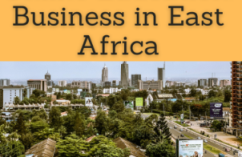Indian Ocean Commission (IOC Africa)
Preferential Trade Regime (Indian Ocean Commission) Mauritius, Seychelles
In 1982 was founded the Indian Ocean Commission (IOC), an African regional institution formed by the Comoros, Reunion Island (France), Madagascar, Mauritius, and the Seychelles.
The main objective of the Indian Ocean Commission is to support the sustainable growth in the Western Indian Ocean Islands through regional integration.

- Introduction to the Indian Ocean Commission (IOC): The Comoros, Reunion Island, Madagascar, Mauritius, and Seychelles
- Secretariat of the Indian Ocean Commission
- Regional Economic Infrastructure
- Preferential Trade Regime of the Indian Ocean Commission
- Rules and certificate of origin of the Indian Ocean Commission
- European Union-Indian Ocean Commission (IOC) Partnership
- Asia-Africa Logistics Corridor
Sample - Indian Ocean Commission (IOC)



The Subject “Indian-Ocean-Commission” is included within the curriculum of the following academic programs at EENI Global Business School:
Doctorate in African Business.

Master in Business in Africa, International Business.

Masters adapted to
 Mauritius and the
Mauritius and the  Seychelles.
Seychelles.
Languages:  or
or  Commission Océan Indien
Commission Océan Indien  Comisión del Océano Índico
Comisión del Océano Índico  Comissão do Oceano Índico.
Comissão do Oceano Índico.
Indian Ocean Commission (IOC).
Observer Countries: China, India, Japan, International Organization of La Francophonie, UN, European Union.
The key activity areas of the Indian Ocean Commission (IOC) are:
- Regional Trade and Tourism promotion
- Environmental protection
- Cultural heritage encouragement
The Secretary-General manages IOC. The Council of Ministers is the responsible for the political and strategic orientations.
- Population: 25.5 million people
- Area: 595,000 km²
- Exclusive Economic Zones: 5.5 million km²
- Budget: 125 million EUR
- The European Union is the main financial partner of the Indian Ocean Commission (IOC)
- Total projects: 44
- The headquarters of the Indian Ocean Commission (IOC) are in Mauritius

The objective of the Regional Integration Support Programme is to encourage the regional economic integration in the region. In this programme also participates:
- Common Market for Eastern and Southern Africa (COMESA)
- EAC (East African Community)
- IGAD (Intergovernmental Authority on Development)
Preferential Trade Regime of the Indian Ocean Commission:
- Madagascar and Mauritius have implemented the Preferential Trade Regime of the Indian Ocean Commission
- Currently, customs duties for those products that meet the Rules of origin of the Indian Ocean Commission are eliminated
The Indian Ocean Commission (IOC) belongs to the East African Economic Area.
(c) EENI Global Business School (1995-2025)
Top of this page








 WhatsApp
WhatsApp